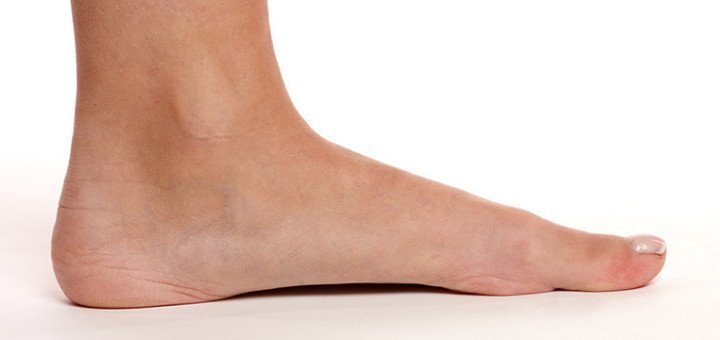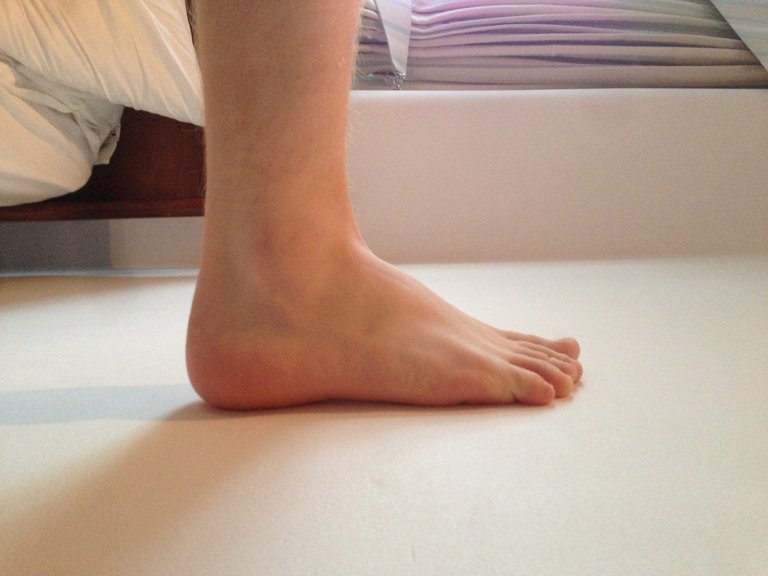A friend slightly mentioned flat feet today, I have heard about it before but not paid attention to what it means, so I decided to ask more questions to get enlightened about the condition my questions were answered, so I will also be sharing what I have learned about the condition with you.

source
Flat feet are also called flatfoot, it is a condition that can affect either one or both feet, the affected one has little to no arch, so when an affected person stands, the pads of the feet are seen pressed unto the ground. A baby when born will naturally have flat feet, the arches we are talking about will begin to form from age six, but some children will take this flat foot into adulthood, while others could develop it as adults.
Flat feet may be a genetic issue, running in some families, some problems that increase the chances of flat feet development, we have; broken bones, diabetes, cerebral palsy, down syndrome, Achilles tendon injuries, obesity, high blood pressure, pregnancy, and rheumatoid arthritis.
Flat feet could cause serious problems when they extend until adulthood, there are different types of flatfoot, we have;
Flexible flat feet which happens to be the most common type, with presentations of arches in the feet even without the person standing, but once weight is placed on the feet, the arches will disappear. Flexible flatfoot begins during childhood or teenage age, affecting both feet and it gets worse with advancement in age, will however not stop the tendons and ligaments existing in the arches of the feet from tearing, stretching, or even swelling.
A fallen arch is otherwise known as an adult-acquired flat foot, this causes the foot arch to collapse or drop unexpectedly. With the presence of a fallen arch, the foot is turned outward and could be painful, the most common cause of this nature of flat foot is inflammation or a tear in the leg tendon.

source
Someone with rigid flat feet will have no arches while standing or sitting, this condition begins during the teenage age of the person affected and it only gets worse with age. This condition creates a painful feeling, making it difficult for the feet to be flexed around, one or both feet may be affected.
Vertical talus is a birth defect some babies have, it prevents arches from even forming. With this, the talus bone in the ankle is found in the wrong position, and the bottom of the feet has the appearance of a rocking chair.
Most times, people with flat feet will not experience any form of pain but some flatfoot could also be painful, causing symptoms like; muscle pain, leg cramps, pain while walking, pain in the arch, and toe drift.
Lots of people who have flat feet do not need any serious treatment, in the presence of foot pain, stiffness, and other non-intense problems, your healthcare provider may recommend nonsurgical treatment, in very rare cases, surgery will be required to fix cases of rigid flat feet or problem with tendons or bones. Treatment options include;
Physical therapies are recommended to help stretch and strengthen tight tendons and muscles, available to improve mobility and flexibility.
Nonsteroidal anti-inflammatory drugs (NSAIDs) could help create rest and ice to help ease pain and inflammation.
The use of supportive devices like leg braces, custom-made shoes, and foot orthotics can also be helpful.
Certain lifestyle changes can also be recommended to help ease pain when you do not have to stand for or walk for a prolonged period.
There is nothing that can be done to prevent yourself from having flat feet, but maintaining a healthy weight will contribute strongly to easing the pain felt from flat feet.
References.
https://www.healthline.com/health/pes-planus#prevention
https://www.medicalnewstoday.com/articles/168608
https://www.medicalnewstoday.com/articles/168608#children
https://my.clevelandclinic.org/health/diseases/17005-flat-feet
